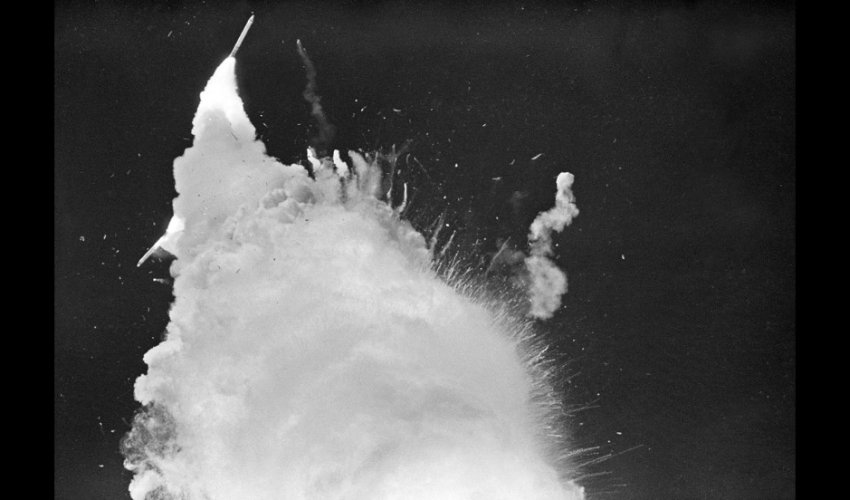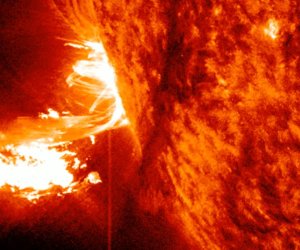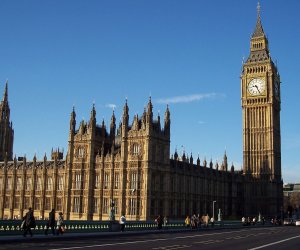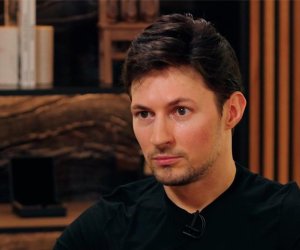Don't forget space is dangerous

The march into space appears to be gathering speed. The not-for-profit Mars One says it plans to establish a human settlement on Mars by 2025, a goal that has attracted more than 200,000 applicants for the one-way trip (a number that has so far been winnowed down to 705 candidates). And before Virgin Galactic's SpaceShip2 crashed in October, nearly a thousand would-be space tourists spent as much as a quarter of a million dollars for the promise of a few minutes of suborbital weightlessness.
But, future astronauts, think very carefully: Space is a very dangerous and unpredictable place.
For decades, space scientists have used an array of sophisticated satellite experiments to study the environment of space from the Earth to the sun. They showed that energetic particles regularly stream toward Earth, often launched from monster spots on the surface of the sun.
The very first U.S. satellite, Explorer I, launched in 1958, discovered the "Van Allen belts" -- two rings of very energetic particles (electrons, protons, positrons) encircling the Earth. Humans wouldn't survive prolonged exposure in this region, although effective shielding (used for the Apollo missions) can reduce the radiation dose.
Back in 1961, the pioneering space physicist James Van Allen said: "... a living organism cannot survive this level of radiation damage. Hence, all manned space flight attempts must steer clear of these two belts of radiation until adequate means of safeguarding the astronauts has been developed."
That goes double for would-be Martian travelers, whose voyage will take more than half a year compared with the few hours Apollo astronauts spent passing through the belts.
Earthlings get a break thanks to the protection of the Earth's magnetic field, which repels and channels electrically charged particles -- sort of like a "Star Trek" force shield. But venture outside the strong field and particles, and radiation will find you. Even airplanes flying long routes over the poles receive excess particle radiation from space.
We might think of the sun as a gentle, benign, even essential, neighbor. And it is. But it's also an ever-changing, violent, extreme particle accelerator, as you can see in this three-minute film of three years of solar activity.
Thanks to dedicated space science research, we now know much more about how particles are accelerated in violent solar storms and about the Van Allen belts. Still, NASA's new "Living With a Star" program, designed to study the effects of the sun on the Earth, both beneficial (heat, light, energy) and harmful (massive particle storms that emanate from sunspots), continues to make surprising discoveries.
On Monday, in the opening Kavli Foundation Plenary Lecture at the American Astronomical Society meeting in Seattle, Professor Dan Baker of the University of Colorado at Boulder will describe new discoveries from the twin Van Allen space probes, which are part of the Living With a Star program.
Among the new discoveries, almost six decades after Explorer 1 identified two Van Allen belts, is a third, transient radiation belt. As Yogi Berra said, "You can observe a lot just by looking."
Another exciting discovery is a kind of impenetrable magnetic shield that provides an unexpectedly strong barrier against the most energetic particles. The physics explanation for this shield is not yet clear, though scientists have proposed some plausible ideas.
But physics also tells us that particles and fields interact. A superstrong solar storm might alter -- and perhaps breach -- the "impenetrable barrier" found by the Van Allen probes.
(CNN)
ANN.Az
Similar news
Similar news
Latest news 
More news 



































 Photo
Photo 



 Video
Video 

